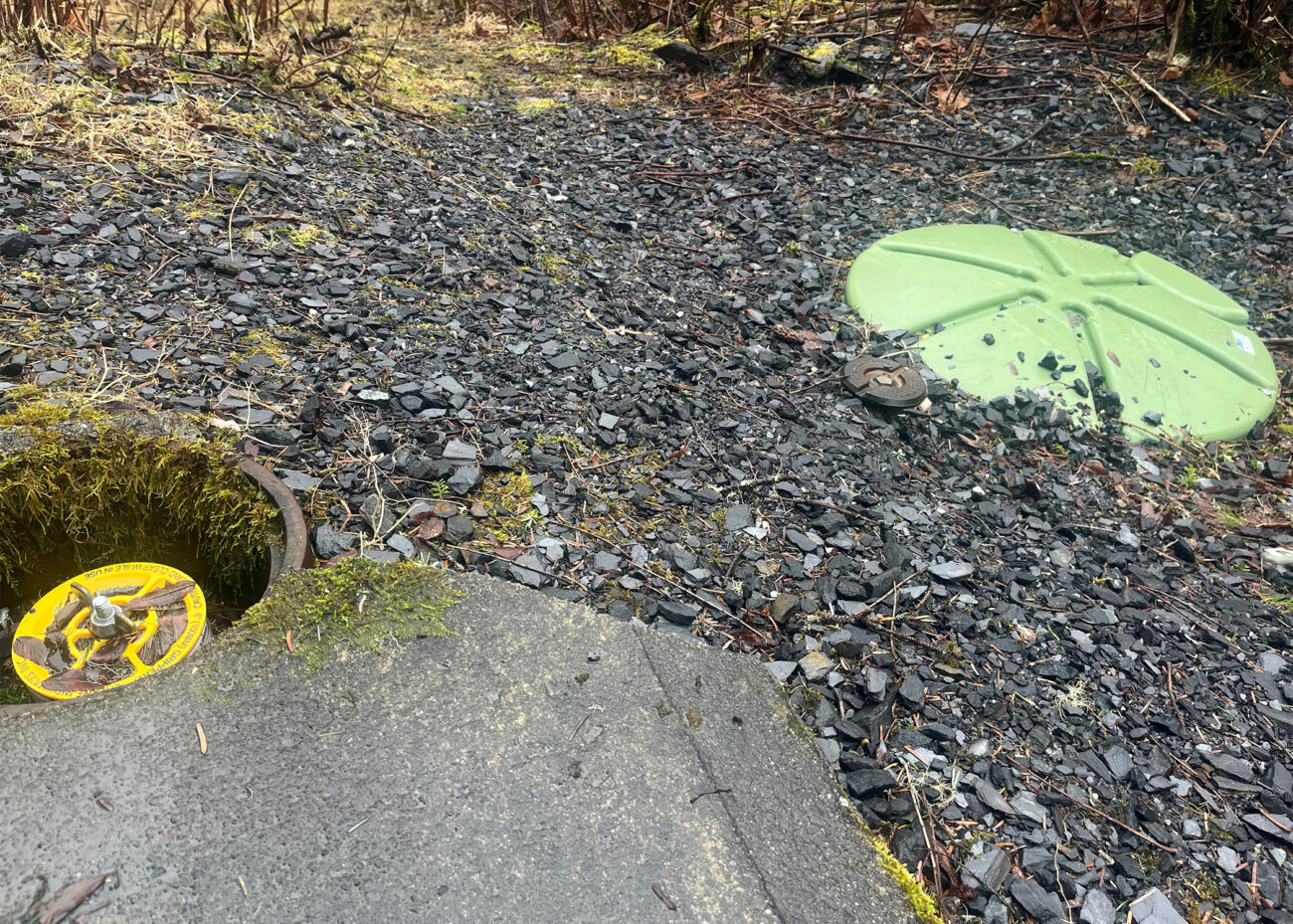
Public Works Director Tom Wetor said the borough has been paying for grinder pumps on personal property for decades and that needs to change. This has been going on for decades, and over the years the number of grinder pumps in the city the Wrangell Borough maintains has grown to process sewage. A grinder pump is a small sewage pump that services one to two homes. People use them when gravity flow to the wastewater treatment plant is not possible. He said he discussed this ongoing issue with the last three city managers and the borough assembly is now considering passing the responsibility of the majority of pumps to property owners. But some property owners said it would cost them too much.
“I think there has been a lot of concern over not only the cost of this but also any potential blowback from trying to address this issue, but here we are,” he said. “So as a result of that and the reluctance to take this issue on, we tried to do what we could within the department.”
Wetor said that it started out with the city maintaining just a couple grinder pumps on private property, but now it’s 30. He said this is costly for the city and it’s a liability.
He recommends the borough move the responsibility of 23 of its 30 pumps to the property owners. That involves providing, installing and maintaining them to be on the public sewer system.
Divesting from majority of grinder pumps would save borough money
They’d continue to maintain the other seven pumps because they are either on a forced main, serve multiple homes in the public right-of-way or service borough infrastructure.
Wetor said divesting those two dozen pumps would save the borough almost $19,000 a year and legal issues.
“A big concern of ours, with regards to the grinder stations, is the liability of these stations,” he said. “You know, if one of these systems backs up and floods somebody’s yard, the way it stands now currently, the city is going to be held liable for damages to fix that.”
Both sides have concerns
But a concern of moving pump responsibility to property owners could lead to more residents using septic systems instead of grinder pumps, Wetor said. And septic systems are overseen by the state Department of Conservation. The downside to that is the state department doesn’t have much of a presence in Wrangell and Wetor doesn’t know how often they would inspect the systems.
“It could lighten some of our load, I guess I would say, in terms of the workload for the sewer department,” he said. “But you know, how well is the upkeep going to be done on those? How much are they going to be keeping an eye on it? And we don’t really want 100 septic systems dumping on the beach right in front of town where people are recreating.”
Some Wrangellites voiced their concerns about who qualifies for having their pump maintained by the borough. Greg Meisner said he thinks all the pumps should be part of the city’s sewer system since he’ll have to pay a percentage no matter what, even if the borough has to raise rates. He currently pays a sewage rate fee and 5% of that goes to maintaining grinder pump stations.
“The folks that are on the high pressure side don’t pay a dime as well as never going to be held accountable to purchase their own or install one with your new ordinance,” he said. “I don’t think that’s fair at all.”
Right now, the 5% fee doesn’t even add up to pay for a service visit, according to Wetor.
‘Trying to get service for various things in town is…tough.’
Assembly member Phillip Mach said that if homeowners have to maintain their own pumps, they might not have the money to fix them if things go wrong.
“My experience of trying to get service for various things in town is it could be tough. Right? You might be on the list and say, ‘Well, I can get you in a week,'” he said. “That’s not going to be an option here.”
Borough Manager Mason Villarma agrees with the public works director – to move the responsibility of the pumps. He said the costs for pumps and other infrastructure will continue to rise. And the borough’s underground infrastructure is deteriorating.
“Eventually we’re going to have too much of a demand of workload and not enough capacity, which I think we’re already there,” Villarma said. “And this has been a solution to limit liability, reduce costs, give justice to the rate payers for paying for what they’re actually getting.”
In a split 4 to 3 vote, the assembly took the first step in approving the ordinance and will hold a public hearing about it. Assembly members Robbins, Mach and Otteson voted against. Assembly members Delrymple, Powell, DeBord and Gilbert voted in favor. The public hearing is set for Feb. 25.
If passed, that ordinance will take effect on June 30.












